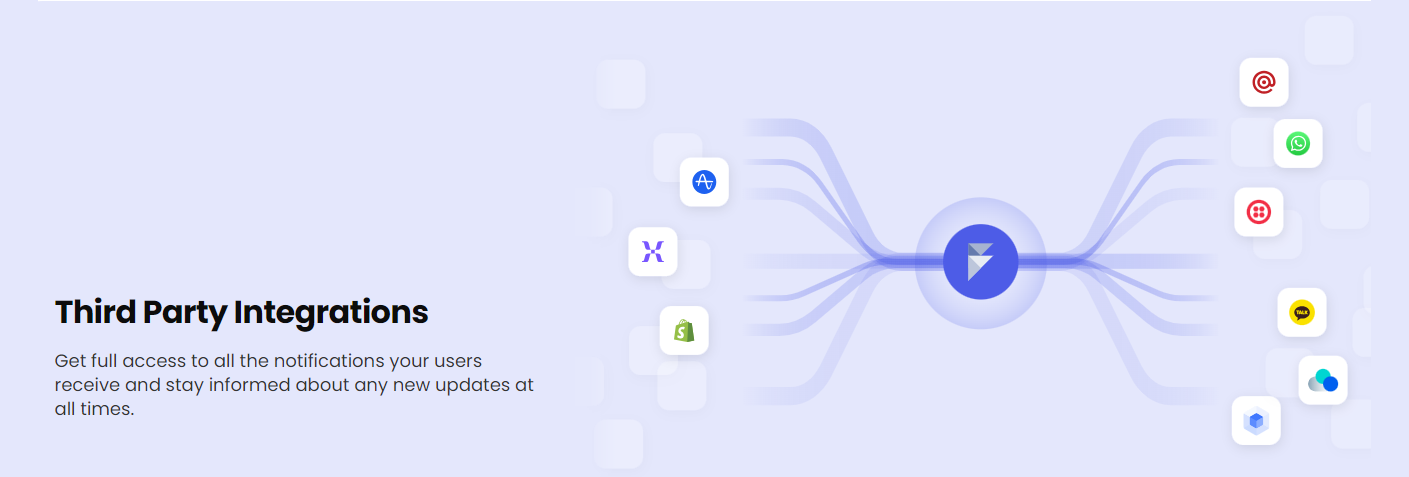Choosing the Right Analytics Tool for Marketing Automation: Google Analytics, Amplitude, and Mixpanel

Marketing automation platforms offer a wide range of features designed to simplify marketers' tasks. However, effective brand growth relies on more than automation—it requires reliable data analytics tools and their seamless integration with marketing automation platforms.
In this article, we will compare the three well-known data analytics tools on the market: Google Analytics, Amplitude, and Mixpanel. We will highlight their features, use cases, pricing, real-world statistics, and integration capabilities to help you determine which one best suits your business needs.
✅Seamless integration between marketing automation tools and data analytics platforms is essential for effective personalization.
✅Google Analytics, Amplitude, and Mixpanel each offer unique features tailored to different business needs, from web traffic analysis to detailed product engagement insights.
✅Choosing the right analytics tool depends on your business goals, and its ability to integrate with marketing automation platforms can significantly enhance campaign effectiveness and user engagement.
Overview of Each Tool
Google Analytics
Google Analytics is a web-based analytics tool primarily focused on tracking website traffic and user interactions. With its universal tracking capabilities, it allows businesses to monitor user behavior, acquisition, conversion rates, and more. Google Analytics 4 (GA4), the latest version, emphasizes event-based tracking, making it easier to follow a user’s journey across devices and platforms. Integration-wise, GA4 seamlessly connects with Google’s suite of marketing tools (e.g., Google Ads, Data Studio), enabling automated workflows and more efficient marketing campaigns.
Amplitude
Amplitude is a product analytics tool designed for tracking user engagement and retention. It excels at visualizing user paths, behavioral cohorts, and product usage metrics, which makes it a great choice for businesses looking to optimize their digital products. Amplitude integrates with a variety of marketing automation platforms, allowing businesses to use data insights to trigger personalized messages and campaigns, enhancing user retention and engagement.
Mixpanel
Mixpanel is also a product analytics tool that emphasizes tracking user actions and engagement. It provides detailed insights into how users interact with a product, making it easier to understand user behavior. Mixpanel’s integrations with marketing automation tools allow businesses to use real-time data to automate marketing actions, such as sending targeted push notifications or emails based on user behavior.
Key Features and Use Cases
Google Analytics: Key Features
Google Analytics is ideal for businesses that need a comprehensive overview of website performance. It's particularly useful for tracking marketing campaigns, understanding user acquisition, and measuring conversion rates. Its integration with marketing automation tools enables businesses to quickly act on insights by running automated campaigns that target specific audience segments. Here are the key features:
- User Acquisition & Traffic Analysis: Tracks where users come from, including channels like social media, search engines, and referrals.
- Conversion Tracking: Monitors user actions, such as purchases, sign-ups, and other goal completions.
- Real-Time Reporting: Provides real-time data on current user activity.
- Cross-Device Tracking: GA4 introduces more robust event tracking that follows users across devices.
- Integrations: Easily integrates with other Google products, such as Google Ads, Google Data Studio, and more. This allows marketers to automate campaigns based on analytics insights, creating a more cohesive marketing strategy.
Amplitude: Key Features
Amplitude is best for companies looking to improve their product by understanding user behavior in detail. It’s often used by product teams to identify which features are popular and where users drop off, allowing for data-driven improvements. The ability to connect these insights to marketing automation platforms ensures that campaigns are highly targeted and relevant, enhancing user experience and retention.
- Event-Based Tracking: Focuses on specific actions users take within an app or website.
- Behavioral Cohorts: Groups users based on similar behaviors, helping identify patterns and trends.
- User Journey Analysis: Allows businesses to visualize user paths and identify drop-off points.
- Retention Analysis: Tracks user engagement over time to help improve product stickiness.
- Custom Dashboards & Reports: Users can create custom dashboards for specific metrics that matter most to their business.
- Integrations: Amplitude’s robust integration capabilities mean that it can seamlessly connect with marketing automation tools like HubSpot, Braze, and Salesforce. This allows businesses to automate personalized marketing campaigns based on user behavior, improving engagement and conversion rates.
Mixpanel: Key Features
Mixpanel is ideal for businesses that need to track detailed in-app events and user actions. It’s commonly used by SaaS companies, e-commerce businesses, and mobile apps to analyze specific user interactions and optimize user engagement. The integration capabilities allow marketing teams to respond instantly to user behavior by triggering automated workflows, such as follow-up emails or push notifications.
- Action-Based Event Tracking: Captures user actions and behaviors within a digital product.
- Advanced Segmentation: Users can segment data by various parameters, including demographics, behavior, and more.
- Funnel Analysis: Helps businesses understand where users drop off in the conversion process.
- Retention Analysis: Similar to Amplitude, it tracks user engagement and retention over time.
- A/B Testing: Built-in tools allow for running experiments and comparing user behaviors across different versions of the product.
- Integrations: Mixpanel integrates with numerous marketing automation platforms, including Mailchimp, HubSpot, and Segment. This enables businesses to automate marketing actions based on real-time data, such as sending personalized messages or retargeting users who abandon a purchase.
Differences in Data Tracking and Integration Capabilities
Google Analytics tracks data based on sessions (visits to a website) and user interactions during those sessions. The tool aggregates data across multiple visits and devices, making it great for understanding website traffic, marketing channels, and conversion paths. GA4 has shifted towards an event-based model, but it's still primarily focused on web analytics. Its strong integration with Google’s marketing tools makes it easier for businesses to automate campaigns, such as retargeting ads or email follow-ups, directly from the platform.
Amplitude and Mixpanel, on the other hand, use an event-based tracking approach. Instead of focusing on sessions, these tools allow businesses to track specific actions (events) users take, such as clicking a button, playing a video, or making a purchase. This makes them more suitable for product analytics and understanding user engagement on a deeper level. Both tools excel in integration with various marketing platforms, enabling marketers to automate personalized campaigns that are informed by detailed product usage data.
A significant difference between Amplitude and Mixpanel is their approach to data visualization. Amplitude offers more detailed, exploratory data analysis, while Mixpanel provides quicker, straightforward insights, focusing on ease of use. However, their integration capabilities mean that both can trigger automated marketing campaigns based on user actions, improving engagement and retention.
Integrating FlareLane With Data Analytics Tools

At FlareLane, seamless data integration is key to effective personalization and automation. Integrating data allows you to trigger or cancel messages, enable personalized communication, and create more detailed user segments. To maximize the impact of your personalization and automation efforts, start by defining your campaigns, setting clear goals, and identifying the customer data you want to use.
Once you have this information, collaborate with your developers to integrate the custom data into your system. FlareLane’s capabilities also allow you to perform tasks that target Amplitude or Mixpanel cohorts by leveraging existing data. For more information on how to integrate FlareLane with other data analytics tools, click here.
Final Thoughts
Each of these analytics tools serves a different purpose. Google Analytics is perfect for understanding overall website performance, while Amplitude and Mixpanel excel in product analytics and user engagement insights. When choosing between them, consider your business goals, the complexity of your product, and your budget.
Also, evaluate how each tool integrates with your marketing automation platforms. Seamless integration can enable you to run more effective, personalized marketing campaigns, driving higher engagement and ROI. By aligning the right tool with your needs, you can unlock valuable insights that drive growth and optimize your marketing and product strategies.
FlareLane is a cross-channel customer engagement platform that features a comprehensive solution for enhancing customer interaction and engagement. With in-app messaging, push notifications, advanced analytics, real-time communication tools, and personalized marketing strategies, we can help you create meaningful and lasting customer relationships.
Ready to take your customer engagement to the next level? Learn more about how we can help your brand thrive.


